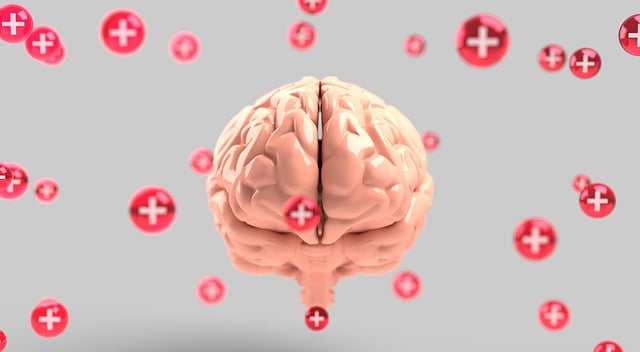Depression prevention requires a multifaceted approach led by recognizing red flags like persistent sadness and changes in appetite/sleep through cultural sensitivity. Parker Chronic Illness Therapy (PCIT) offers a holistic strategy integrating physical and emotional well-being, personalized care, and Mind Over Matter principles. PCIT promotes resilience building, encourages healthy lifestyles, fosters community support, and advocates for early intervention to reduce stigma. Through evidence-based practices like CBT, personalized coping strategies, and community outreach, PCIT empowers individuals to prevent and manage depression effectively.
Depression is a common yet serious mental health condition, affecting millions worldwide. In this comprehensive guide, we explore effective prevention strategies to combat depression and promote overall well-being. From recognizing early signs and symptoms to discovering holistic approaches like Parker Chronic Illness Therapy, we offer practical insights. Learn about the impact of lifestyle adjustments, building resilience through coping mechanisms, and the invaluable support available through social connections and professional help.
- Understanding Depression: Recognizing the Red Flags
- Parker Chronic Illness Therapy: A Holistic Approach to Mental Well-being
- Lifestyle Adjustments for a Brighter Mindset
- Building Resilience: Coping Mechanisms and Stress Management
- The Power of Support: Social Connections and Professional Help
Understanding Depression: Recognizing the Red Flags

Depression is a complex mental health disorder that impacts millions worldwide. Understanding its nuances is paramount in prevention efforts. Recognizing the red flags—persistent feelings of sadness, loss of interest in activities once enjoyed, changes in appetite or sleep patterns, fatigue, and difficulty concentrating—is the first step towards intervention. These signs may manifest differently across individuals, with some experiencing severe symptoms while others have milder but chronic forms, such as persistent low mood often characterized in Parker Chronic Illness Therapy.
The approach to prevention should encompass various strategies, including fostering resilience through Mind Over Matter Principles, ensuring Cultural Sensitivity in Mental Healthcare Practice for accurate diagnosis and tailored treatment, and enhancing communication between individuals and their healthcare providers. Effective communication strategies enable people to articulate their experiences, express concerns, and collaborate with mental health professionals, ultimately facilitating timely access to appropriate care.
Parker Chronic Illness Therapy: A Holistic Approach to Mental Well-being

Depression prevention strategies have evolved to include a broader range of approaches, recognizing that mental well-being is influenced by multiple factors. One such innovative method gaining traction is Parker Chronic Illness Therapy. This holistic approach focuses on addressing not just symptoms but the underlying causes of depression, considering both physical and emotional aspects of an individual’s life. By integrating various therapeutic techniques, this methodology aims to enhance resilience and promote lasting recovery.
In addition to its clinical application, Parker Chronic Illness Therapy intersects with areas such as Mental Health Policy Analysis and Advocacy and Public Awareness Campaigns Development. Policies that support holistic mental health care can foster a more comprehensive understanding of depression, encouraging early intervention and reducing the societal stigma associated with seeking help. Similarly, public awareness campaigns that highlight Emotional Healing Processes can normalize conversations around mental health, ultimately leading to increased access to effective prevention strategies.
Lifestyle Adjustments for a Brighter Mindset

Maintaining a healthy lifestyle can significantly impact one’s mental health and prevent depression. Simple adjustments like regular exercise, a balanced diet, and adequate sleep play a crucial role in boosting mood and overall well-being. Research suggests that physical activity releases endorphins, which are known to reduce stress and anxiety. A nutritional diet, rich in vitamins and minerals, supports brain function and can improve symptoms of depression. Additionally, prioritizing sleep hygiene ensures your mind and body rest and recharge, leading to better emotional regulation.
The Parker Chronic Illness Therapy emphasizes these lifestyle changes as part of a holistic approach to mental health care. Cultural sensitivity in mental healthcare practice is also vital, ensuring that personalized strategies cater to individual needs without judgment. By incorporating such practices into daily routines, individuals can foster mental wellness and build resilience against depression. This proactive approach, combined with evidence-based treatments, may contribute to better outcomes as highlighted in Mental Health Policy Analysis and Advocacy discussions.
Building Resilience: Coping Mechanisms and Stress Management

Building resilience is a key component of depression prevention strategies, as it equips individuals with effective coping mechanisms and stress management skills. At Parker Chronic Illness Therapy, our approach emphasizes fostering mental fortitude to navigate life’s challenges. We encourage clients to identify and develop personalized strategies that enhance their ability to bounce back from setbacks, promote emotional well-being, and reduce the risk of depressive episodes.
Through our Community Outreach Program Implementation, we engage in proactive initiatives that spread awareness about depression prevention. By integrating Mind Over Matter principles, individuals learn to challenge negative thought patterns and cultivate a more positive outlook on life. This transformation empowers them to better manage stress, build supportive networks, and develop adaptive coping mechanisms, ultimately reducing the likelihood of falling into a cycle of depression.
The Power of Support: Social Connections and Professional Help

Depression prevention often hinges on building a robust support network and seeking professional guidance. Social connections play a pivotal role in mental health; feelings of isolation can significantly contribute to depressive episodes. Cultivating meaningful relationships through community outreach programs, social groups, or even online communities can provide a sense of belonging and support. These connections offer a safe space to express emotions, share experiences, and gain different perspectives on life’s challenges.
Additionally, Parker Chronic Illness Therapy emphasizes the importance of professional help in managing and preventing depression. Therapists equipped with evidence-based practices, such as cognitive-behavioral therapy (CBT), can provide valuable tools for resilience building. Techniques like Mental Wellness Journaling Exercises offer individuals a way to track moods, identify triggers, and develop healthy coping mechanisms. This guidance empowers people to take proactive steps in maintaining their mental wellness and breaking the cycle of depression.
Depression prevention is a multifaceted approach, as evidenced by the various strategies discussed. By understanding depression’s red flags, adopting holistic practices like Parker Chronic Illness Therapy, making positive lifestyle adjustments, building resilience through effective coping mechanisms and stress management, and leveraging the power of social connections and professional help, individuals can significantly reduce their risk and manage symptoms effectively. Incorporating these strategies into daily life fosters mental well-being and enhances overall quality of life.














